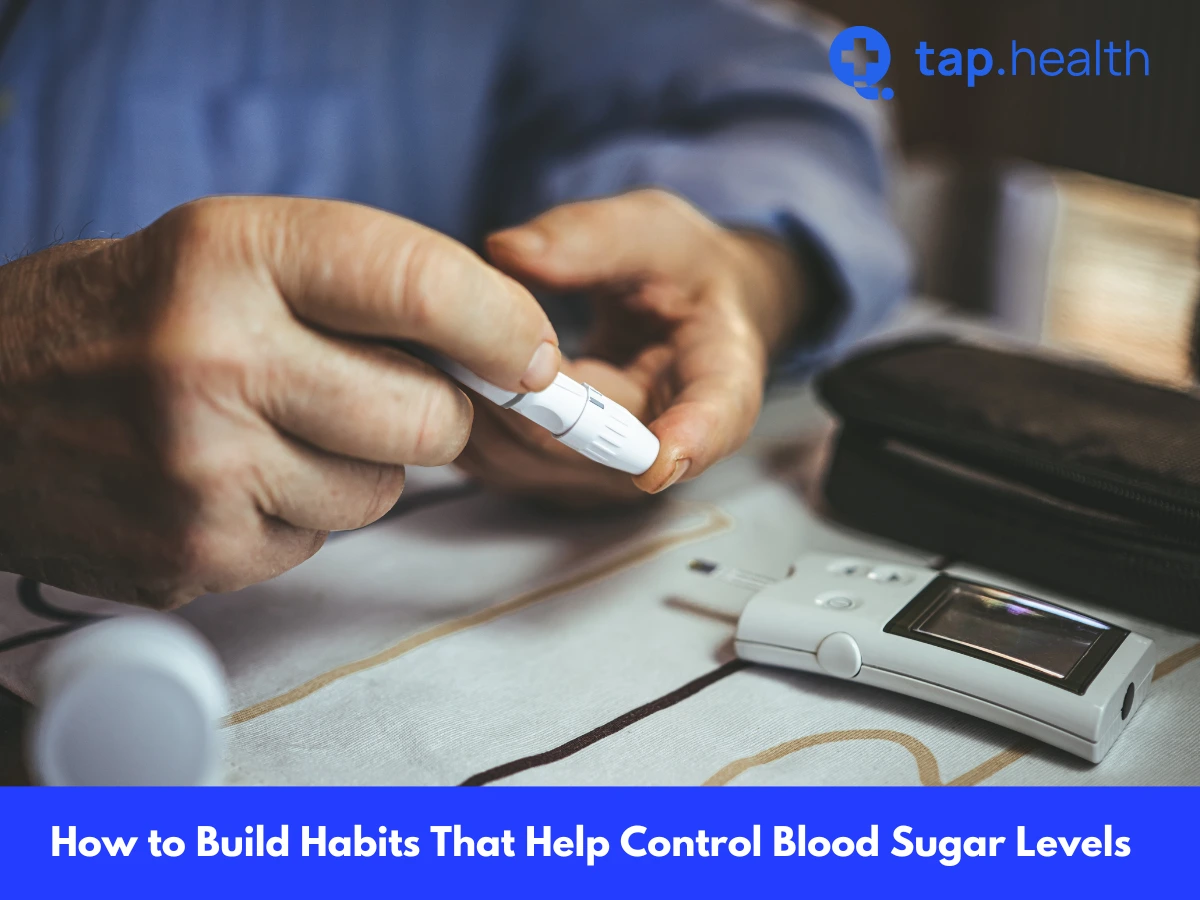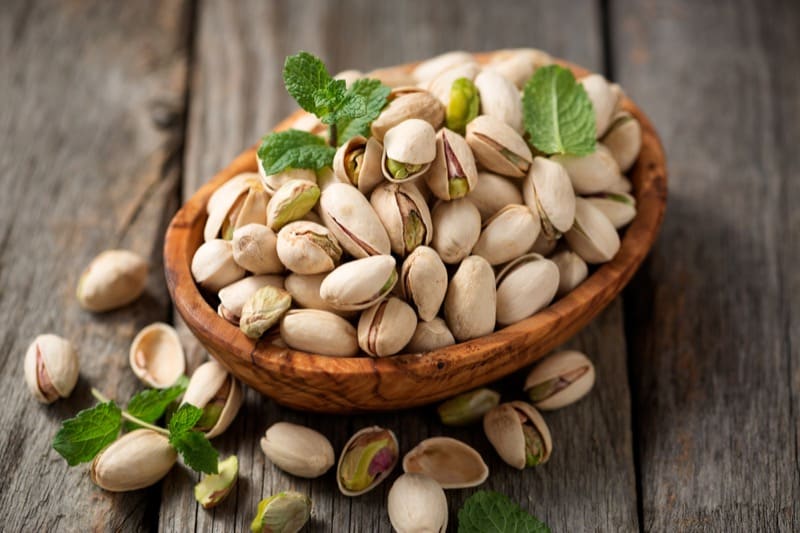Managing blood sugar levels is crucial for overall health, especially for those with diabetes or those at risk. Blood sugar control plays a vital role in preventing long-term health complications like heart disease, nerve damage, and kidney problems. Building healthy habits is one of the most effective ways to keep your blood sugar in check. In this blog post, we’ll explore simple, actionable habits that can help you control your blood sugar levels and improve your overall health.
Why Controlling Blood Sugar is Important
Before we dive into building habits, it’s essential to understand why controlling blood sugar is so important. When you eat, your body breaks down carbohydrates into glucose (sugar), which enters your bloodstream. Insulin, a hormone produced by the pancreas, helps move glucose from the blood into cells where it’s used for energy.
For people with diabetes, the body doesn’t produce enough insulin or doesn’t use it effectively, leading to high blood sugar levels. Uncontrolled blood sugar over time can damage organs, nerves, and blood vessels. Keeping blood sugar within a healthy range can prevent these complications and improve your quality of life.
Now, let’s look at how you can develop habits to help manage your blood sugar.
1. Start with a Healthy, Balanced Diet
What you eat plays a significant role in blood sugar management. Building the habit of eating a healthy, balanced diet will help you regulate blood sugar levels throughout the day.
Focus on Low Glycemic Index (GI) Foods
The Glycemic Index (GI) measures how quickly foods cause blood sugar to rise. Foods with a low GI are absorbed slowly, helping maintain stable blood sugar levels.
Low GI foods include:
- Whole grains (brown rice, oats)
- Non-starchy vegetables (spinach, kale, broccoli)
- Legumes (lentils, chickpeas)
- Fruits (apples, berries, oranges)
Avoid high-GI foods, such as white bread, sugary snacks, and processed foods, as they cause rapid blood sugar spikes.
Include Protein and Healthy Fats in Your Meals
Adding protein and healthy fats to your meals can slow the absorption of glucose into your bloodstream, preventing sharp spikes in blood sugar.
Good sources of protein:
- Lean meats (chicken, turkey)
- Fish (salmon, mackerel)
- Eggs, beans, and tofu
Healthy fats include:
- Avocados
- Nuts and seeds (almonds, chia seeds)
- Olive oil
By incorporating these into your meals, you can promote steady blood sugar levels and improve overall satiety, keeping you full for longer.
Control Portion Sizes
Overeating can overwhelm your body’s ability to process glucose, leading to blood sugar spikes. Building the habit of eating smaller portions, especially of high-carb foods, can help prevent large fluctuations in blood sugar.
Use smaller plates and bowls to help control portion sizes, and try eating slowly to give your body time to signal when it’s full.
2. Exercise Regularly
Exercise is one of the most powerful tools for managing blood sugar. Physical activity helps your muscles use glucose for energy, which reduces the amount of glucose in the blood.
Incorporate Different Types of Exercise
Both aerobic exercise and strength training are beneficial for blood sugar control. Aim for a combination of both.
Aerobic exercises include activities like:
- Walking
- Cycling
- Swimming
Strength training includes:
- Weightlifting
- Bodyweight exercises (squats, push-ups)
Exercising regularly can improve insulin sensitivity, helping your body use insulin more effectively.
Get Moving After Meals
A simple habit that can help lower blood sugar levels after eating is to go for a short walk. Even a 10-15 minute walk after meals can help your body use the glucose from the food you just ate, reducing the chance of a blood sugar spike.
3. Stay Hydrated
Drinking enough water is essential for blood sugar control. When you’re hydrated, your kidneys can work more efficiently to remove excess glucose from the bloodstream.
Drink Water Regularly
Aim to drink at least 8 glasses of water per day. You may need more if you’re physically active or live in a hot climate. Staying hydrated helps prevent dehydration, which can lead to high blood sugar levels.
Tip: If you’re craving something with flavor, opt for water with a slice of lemon or cucumber, or try herbal teas that don’t contain added sugars.
4. Get Enough Sleep
Sleep plays a crucial role in blood sugar regulation. Poor sleep can make it harder for your body to use insulin effectively, leading to higher blood sugar levels.
Build a Consistent Sleep Routine
Developing a regular sleep schedule is an excellent habit to improve your overall health and help control blood sugar. Try to go to bed and wake up at the same time every day, even on weekends.
Aim for 7-9 Hours of Sleep
Most adults need between 7 and 9 hours of sleep each night. Poor sleep or sleep deprivation can increase insulin resistance and contribute to higher blood sugar levels.
Create a Sleep-Friendly Environment
Make your bedroom a relaxing, sleep-friendly environment. Keep it dark, quiet, and cool, and avoid using screens (phones, computers, TVs) right before bed.
5. Manage Stress
Stress can have a significant impact on your blood sugar levels. When you’re stressed, your body produces cortisol, a hormone that can increase blood sugar. Managing stress through healthy habits can help keep your blood sugar under control.
Practice Relaxation Techniques
Incorporating relaxation techniques into your routine can help you manage stress more effectively. Some useful techniques include:
- Deep breathing exercises
- Meditation or mindfulness
- Yoga
Engage in Enjoyable Activities
Hobbies or activities that you enjoy, such as gardening, painting, or spending time with loved ones, can reduce stress and help keep your blood sugar levels stable.
6. Monitor Your Blood Sugar Regularly
Regularly checking your blood sugar levels allows you to stay on top of your health. It helps you understand how your habits, food choices, and lifestyle changes affect your blood sugar.
Track Your Blood Sugar
Use a glucose meter or continuous glucose monitor (CGM) to check your blood sugar levels at various times throughout the day. Keep track of your results to spot trends and make adjustments to your diet and lifestyle as needed.
Work with Your Healthcare Provider
If you have diabetes, it’s essential to work with your healthcare provider to set target blood sugar levels. Regular checkups and blood tests, such as HbA1c, can help you understand how well you’re managing your blood sugar over time.
7. Avoid Smoking and Limit Alcohol
Both smoking and excessive alcohol intake can negatively impact blood sugar levels.
Quit Smoking
Smoking increases insulin resistance, making it harder for your body to regulate blood sugar levels. Quitting smoking can improve insulin sensitivity and help prevent high blood sugar.
Limit Alcohol Consumption
Drinking too much alcohol can cause blood sugar levels to rise or fall unpredictably. If you choose to drink, do so in moderation. Limit alcohol to no more than one drink per day for women and two drinks per day for men.
FAQ on How to Build Habits That Help Control Blood Sugar Levels
1. What is the best food to control blood sugar levels?
The best foods to control blood sugar levels are those high in fiber and low in refined carbohydrates, such as whole grains, vegetables, legumes, and fruits. Lean proteins and healthy fats, like those from fish, nuts, and avocados, also help stabilize blood sugar.
2. How can I lower my blood sugar quickly?
To lower blood sugar quickly, try drinking water to stay hydrated, taking a brisk walk, or practicing deep breathing exercises to reduce stress. If your blood sugar is consistently high, consult your healthcare provider for appropriate interventions.
3. How much exercise is needed to control blood sugar?
Aim for at least 30 minutes of moderate aerobic exercise most days of the week. Including strength training exercises twice a week can further help improve insulin sensitivity and blood sugar control.
4. Can stress raise blood sugar levels?
Yes, stress can raise blood sugar levels. When you’re stressed, your body releases cortisol, which can increase glucose production in the liver, making it harder to control blood sugar levels.
5. How does sleep affect blood sugar?
Poor sleep can increase insulin resistance, leading to higher blood sugar levels. Aim for 7-9 hours of sleep each night to help maintain healthy blood sugar levels.
By building these habits into your daily routine, you can take control of your blood sugar and reduce the risk of complications. Remember, small changes can lead to significant improvements in your health. Start slowly, stay consistent, and seek support from healthcare providers if needed to create a plan tailored to your needs.



